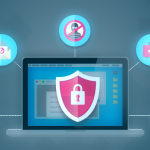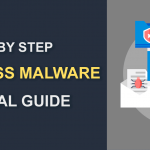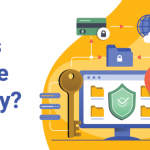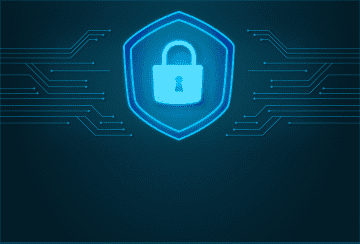How Do I Secure My WordPress Site?
April 16, 2024 | By Admin

5 Simple Steps to Secure your WordPress Site
The WordPress company is doing its best to secure its users. After all, they're a business benefiting from their own customers. They'll do their best from assisting in protecting their customers from online attacks. Though, there are factors that may still lead to website security failure such as human error. A WordPress website user is expected to customize their own website. That's an awesome chance to personalize your own protection and experience using WordPress. But it may also become a vulnerability when you missed out on any stronger security settings.Securing Your Website
Since there are human drawbacks when managing a WordPress website, there are a couple of things you need to remember when working with it. Never let human errors become your own vulnerability.1.Keep WordPress Core updated:
When WordPress releases security updates, WP Engine helps ensure your site obtains them. Whenever possible, we recommend not deferring these updates. When WordPress Core updates are released, it's best practice to test the updates in your staging site. Then, you can create the update on your live website once you have confirmed all works well.2.Always update Your Plugins and Themes:
Plugin and theme authors often release security updates. These updates can also help optimize the plugin to work thoroughly with the current versions of CDN for WordPress. It is important to keep up to date on these plugin and theme updates. Outdated software is the number one cause of malware or infection on sites as they lose their security features once it expires.3.Never login to WordPress on a public computer:
By logging into your site from a public computer, your admin credentials may be vulnerable to others who use the same computer, or other users on the network.4.Two-Factor Authentication Login:
Implementing two-factor authentication (2FA) for logging in is one of the simplest but most effective ways of preventing brute force attacks. The way they work is that they add an extra layer of login security by requesting additional proof of ID, such as a mobile-generated code or secret questions. WP Google Authentication plugin is a good example of a 2FA plugin that can easily be installed to secure your site's login.5.Regularly audit admin users:
It's best practice to occasionally audit the users for your wp-admin area and for SFTP (in the User Portal) to ensure only those who still need access are allowed. It's also a good step to assure that users on your site are only given the access level they need (author, editor, admin, etc).cWatch WordPress Security - Protect your Site
There are many options found online, but cWatch offers the most efficient features for businesses. It has many other features that help to keep your website stronger than other security tools. It is the website security check tool that combines a Web Application Firewall (WAF) provisioned over a Secure Content Delivery Network (CDN). It is a fully capable website security check tool from an around-the-clock staffed Cyber Security Operation Center (CSOC) of certified security analysts and is powered by a Security Information and Event Management (SIEM) that leverages data from over 85 million endpoints to detect and mitigate threats before they occur. To strengthen the web application firewall feature, here are the other features that cWatch has on its layers. Cyber Security Operations Center (CSOC)
Your team of always-on certified cybersecurity professionals providing 24x7x365 surveillance and remediation services.
Security Information & Event Management (SIEM)
The website security for my website has an advanced intelligence leveraging current events and data from 85M+ endpoints & 100M+ domains.
Secure Content Delivery Network (CDN)
The website security for my website has a global system of distributed servers that boost the performance of websites and web applications.
PCI Scanning
The website security for my website has PCI Scanning that enables merchants and service providers to stay in compliance with PCI DSS.
Malware Monitoring & Remediation
The website security for my website identifies malware, provides the tools and methods to remove it, and helps to prevent future malware attacks.
On top of all the benefits from cWatch free firewall protection, you'll get the initial test for free! No need for credit cards. We created a plan that suits any interested online entrepreneurs to increase their website security as a service. The Comodo cWatch Web contains unique sophisticated web security as a service features that are not available in other web security as a service tool.
Cyber Security Operations Center (CSOC)
Your team of always-on certified cybersecurity professionals providing 24x7x365 surveillance and remediation services.
Security Information & Event Management (SIEM)
The website security for my website has an advanced intelligence leveraging current events and data from 85M+ endpoints & 100M+ domains.
Secure Content Delivery Network (CDN)
The website security for my website has a global system of distributed servers that boost the performance of websites and web applications.
PCI Scanning
The website security for my website has PCI Scanning that enables merchants and service providers to stay in compliance with PCI DSS.
Malware Monitoring & Remediation
The website security for my website identifies malware, provides the tools and methods to remove it, and helps to prevent future malware attacks.
On top of all the benefits from cWatch free firewall protection, you'll get the initial test for free! No need for credit cards. We created a plan that suits any interested online entrepreneurs to increase their website security as a service. The Comodo cWatch Web contains unique sophisticated web security as a service features that are not available in other web security as a service tool.



 (22 votes, average: 3.64 out of 5, rated)
(22 votes, average: 3.64 out of 5, rated)








